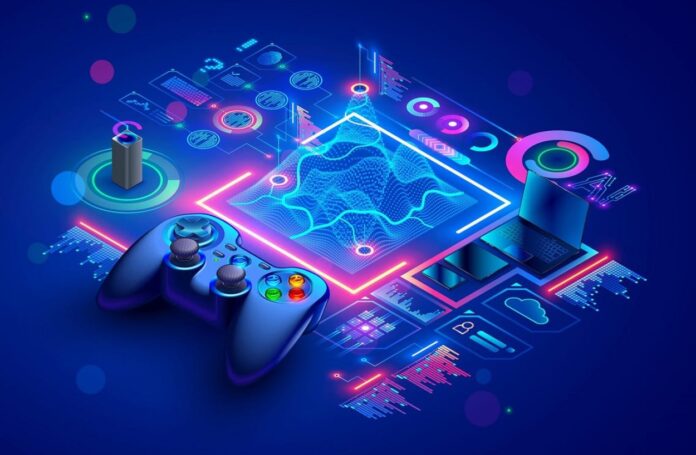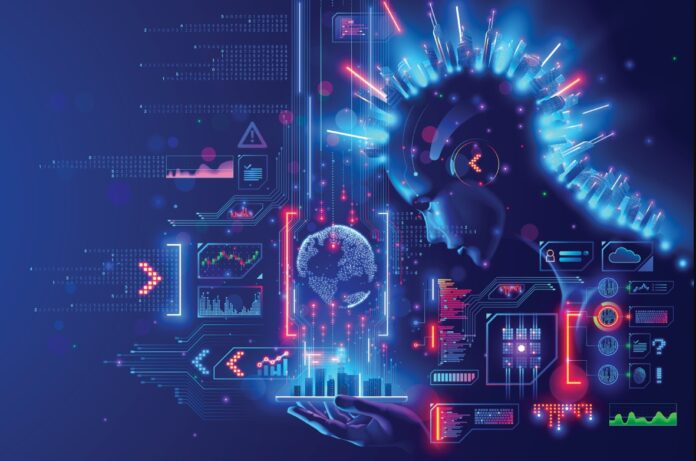Artificial Intelligence (AI) has revolutionized various industries, and online poker is no exception. From enhancing gameplay experience to detecting fraudulent activities, AI technologies play a pivotal role in shaping the landscape of these platforms.
This article delves into the intricate ways AI is integrated into these platforms, examining its impact on players, operators, and the overall gaming environment.
AI in Player Experience

Online poker platforms utilize AI algorithms to enhance player experience in several ways. One significant application is the development of intelligent matchmaking systems that pair players based on skill level, ensuring balanced and competitive gameplay.
Moreover, AI-powered chatbots provide instant assistance to players, addressing queries, resolving issues, and offering personalized recommendations.
Additionally, AI-driven analytics tools analyze player behavior and preferences, enabling platforms to tailor promotions and rewards, thus fostering player engagement and loyalty.
Personalized Recommendations
To provide personalized suggestions, AI systems analyze players’ gameplay behaviors, preferences, and historical data.
These systems increase player engagement and pleasure by proposing appropriate game varieties, tournaments, and promotional offers.
These recommendations not only adapt to individual interests but also help to create a more immersive and pleasurable gaming experience.
Fraud Detection
Artificial intelligence algorithms are useful in detecting and preventing fraudulent activity on sites.
AI systems detect suspect activities like collusion, bots, and cheating by analyzing gaming patterns, transactional data, and user interactions in real time. Platforms preserve integrity and fairness by swiftly flagging and investigating such incidents, guaranteeing a secure gaming environment for all players.
AI in Game Development

AI technologies play a crucial role in optimizing game development processes and enhancing the quality of these offerings.
Advanced algorithms simulate human-like gameplay behaviors, enabling developers to create realistic and challenging virtual opponents.
Additionally, AI-driven procedural generation techniques generate dynamic game environments, ensuring endless variety and excitement for players.
Furthermore, AI-powered algorithms analyze player feedback and gameplay data to continuously improve game mechanics, interface design, and overall user experience.
Virtual Opponents
Virtual opponents emulate human-like decision-making processes, providing players with challenging and realistic gameplay experiences.
These intelligent bots adapt to players’ strategies, learning from past interactions and adjusting their tactics accordingly.
By offering dynamic and engaging gameplay, virtual opponents enhance the overall gaming experience, catering to both recreational and competitive players.
Dynamic Environments
Procedural generation techniques create dynamic and diverse game environments, ensuring that each gaming session is unique and unpredictable.
By generating randomized elements such as card distributions, table layouts, and environmental factors, online poker platforms maintain excitement and freshness, preventing gameplay from becoming monotonous or repetitive.
Moreover, dynamic environments challenge players to adapt their strategies, fostering skill development and strategic thinking.
AI in Risk Management
Effective risk management is crucial for the sustainability and success of platforms, and AI technologies play a vital role in mitigating various risks associated with the gaming industry.
AI-powered algorithms analyze vast amounts of data to assess and manage financial risks, including market volatility, payment processing risks, and regulatory compliance. Furthermore, AI-driven predictive analytics tools forecast potential risks and vulnerabilities, enabling platforms to proactively implement preventive measures and safeguards.
By identifying potential threats such as payment processing delays, currency fluctuations, and fraud trends, AI systems help platforms make informed decisions and implement risk mitigation strategies.
Moreover, real-time monitoring and analysis enable platforms to detect and respond swiftly to emerging risks, minimizing financial losses and safeguarding business operations.
AI technologies play a crucial role in assisting platforms in navigating complex regulatory landscapes and ensuring compliance with relevant laws and regulations, creating a secure environment for players to play poker online.
AI-powered compliance management systems automate regulatory monitoring, and tracking changes in legislation, licensing requirements, and industry standards.
By centralizing compliance processes and streamlining documentation workflows, AI systems help platforms reduce compliance costs, minimize legal risks, and maintain a transparent and compliant gaming environment for players engaging in online poker.
AI in Player Behavior Analysis

These algorithms analyze vast amounts of player data to gain insights into player behavior and preferences. By tracking gameplay patterns, betting strategies, and engagement metrics, platforms can identify trends and tendencies among players.
This data-driven approach enables platforms to segment players based on their preferences and playing styles, allowing for targeted marketing campaigns and customized gaming experiences.
Moreover, AI-powered behavioral analysis helps platforms detect potential signs of problem gambling or addiction, enabling early intervention and support measures for at-risk players.
Segment players into distinct groups based on their behavior, preferences, and engagement patterns. By categorizing players according to factors such as skill level, playing frequency, and preferred game variations, platforms can tailor marketing strategies and promotional offers to meet the specific needs and interests of each segment.
Moreover, player segmentation enables platforms to optimize game offerings and features, catering to the diverse preferences of their player base and maximizing player satisfaction and retention.
Behavioral analysis tools help platforms implement responsible gaming measures to protect players from harm.
By monitoring players’ gaming activities and identifying potential signs of problem gambling or compulsive behavior, platforms can intervene proactively and offer support resources such as self-exclusion options, cooling-off periods, and access to counseling services.
Additionally, AI algorithms provide insights into the effectiveness of responsible gaming initiatives, enabling platforms to refine and enhance their approach to player protection and well-being.
AI in Fraud Prevention
AI technologies play a crucial role in detecting and preventing fraudulent activities on these platforms. By analyzing vast amounts of data in real-time, AI-powered fraud detection systems identify suspicious behaviors such as collusion, chip dumping, and bot usage.
Moreover, AI algorithms continuously learn and adapt to new fraud tactics, ensuring robust protection against evolving threats.
Through proactive monitoring and intervention, platforms safeguard the integrity and fairness of their games, maintaining trust and confidence among players.
Conclusion

In conclusion, the integration of AI technologies has transformed the online poker industry, revolutionizing player experience, game development, and risk management practices.
From personalized recommendations and intelligent matchmaking to virtual opponents and dynamic environments, AI-driven innovations enhance gameplay excitement and engagement.
Moreover, AI algorithms play a critical role in detecting and preventing fraudulent activities, ensuring fairness and integrity on online poker platforms.
As AI continues to evolve, its impact on the online poker industry is expected to grow, driving innovation, efficiency, and competitiveness in this dynamic and rapidly evolving landscape.








